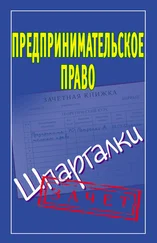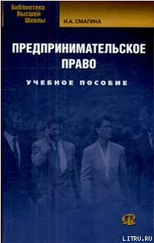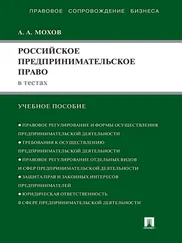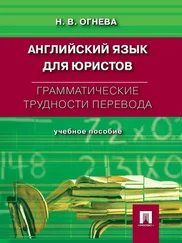В обществе с числом акционеров более пятидесяти создается совет директоров (наблюдательный совет).
Исполнительный орган общества может быть коллегиальным (правление, дирекция) и (или) единоличным (директор, генеральный директор). Он осуществляет текущее руководство деятельностью общества и подотчетен совету директоров (наблюдательному совету) и общему собранию акционеров.
List of key terms and word combinations:
– cumulative voting – метод голосования акционеров путем сложения голосов по акциям
– derivative suit – производный иск
– direct suit – прямой, непосредственный иск
– insider trading – продажа акций лицами и учреждениями, располагающими конфиденциальной информацией
– managerial control – контроль менеджеров над компанией
– pooling agreements – объединение (напр. прибылей)
– preemptive right – преимущественное право покупки
– proxy – представитель; доверенный; полномочие; доверенность; голос держателя акции, поданный по доверенности или через уполномоченного представителя
– proxy solicitation – ходатайство о представлении доверенности на голосование
– shareholder of record – владелец именной акции, зарегистрированный в книгах компании
– trustee – доверительный собственник; лицо, распоряжающееся имуществом на началах доверительной собственности
– voting trust – аккумуляция в одних руках акций различных лиц на началах доверительной собственности для распоряжения голосами в целях установления контроля над делами компании
The business affairs of a corporation are managed by a board of directors that is elected by the shareholders. The board's responsibility is to take whatever actions are appropriate, in keeping with the corporation's rules and regulations, to further the corporation's business. Individual board members are supposed to use their own judgment in the corporate decision-making process.
Law and corporate rules establish the qualifications that a person must have to be a corporate director.
In general, directors are elected at the annual meeting of the shareholders. The directors of most large corporations meet on a regular basis at a time and place of their choosing. The directors of many smaller corporations meet only when specific items are to be considered. Small corporations having few shareholders can eliminate the board of directors entirely, as long as someone is assigned the duties that the board would have performed.
Directors have the authority to appoint officers and agents to run the day-to-day affairs of the corporation. By statute, the usual officers are a president, several vice-presidents, a secretary, and a treasurer. Other officers, such as a comptroller, cashier, and general counsel are often provided. The bylaws of the corporation describe the duties of each officer. Officers have the authority of general agents for the operation of the normal business of the corporation. They, in turn, delegate duties to various department heads. Although the roles of directors and officers differ, they are frequently assumed by the same people. An individual may be both chief executive officer and chairman of the board of the same corporation.
When the court hears a case challenging a manager's decision, it will turn to one of two rules in judging that conduct: the business judgment rule or the fairness rule. Other areas of managerial responsibility are found in the insider trading rule and the corporate opportunity rule.
Under the business judgment rule, the court will not interfere with most business decisions. The rule protects managers who act with due care and in good faith, as long as their decisions are lawful and are in the best interests of the corporation. The rule results from the common sense belief that, based on their education, experience, and knowledge, managers are in the best position to run the corporation. In contrast, shareholders and judges are far removed from the day-to-day operation of the business and should not be allowed to second-guess most management decisions. Protecting directors and officers in this way encourages people to become corporate managers and reassures them that they will be protected when making difficult business decisions.
The business judgment rule assumes that managers do not personally profit from business decisions. To fulfill a duty of loyalty to the corporation, managers must place the corporation's interests above their own. When managers enter contracts with the corporation or when they are on the boards of two corporations that deal with each other, a different standard is used to judge their conduct. This standard, known as the fairness rule, requires managers to be fair to the corporation when they personally benefit from their business decisions. Managers who benefit from their own decisions are said to be self-dealing. The fairness rule does not automatically declare managers disloyal if they profit from a corporate decision: at a minimum, it requires corporate managers to disclose all crucial information when they enter contracts with the corporation.
Two rules that give the courts specific ways to measure a corporate manager's fairness in certain types of situations are the insider trading rule and the corporate opportunity rule.
According to the insider trading rule, when managers possess important inside information, they are obligated to reveal that information before using it in a transaction. The rule also states that when inside information cannot be revealed, the managers must not use that information when trading with the corporation or with those outside the corporation.
Under the corporate opportunity rule, corporate managers cannot take a business opportunity for themselves if they know that the corporation would be interested in that opportunity as well. Before taking the opportunity, managers must first offer it to the corporation by informing the other managers and shareholders. If the corporation rejects it, the managers are then free to take the opportunity.
The shareholders are the primary reason a corporation exists. They contribute their money to the corporation in the hope of a return on their investment. As owners of the corporation, shareholders can influence corporate decision making through their voting powers (managerial control) and through their right to initiate a lawsuit against managers (corporate democracy).
Shareholders usually receive one vote per share of common stock held. Those who are dissatisfied with management can attempt to buy more shares to increase their voting power and influence the election of the board of directors. However, shareholders are not always able to buy more shares of the corporation either because they cannot afford them or because the other shareholders are not willing to sell. In such cases, shareholders can resort to one of the other voting methods available: cumulative voting, proxy solicitation, voting trusts, pooling agreements, and shareholder proposals.
Читать дальше
Конец ознакомительного отрывка
Купить книгу












